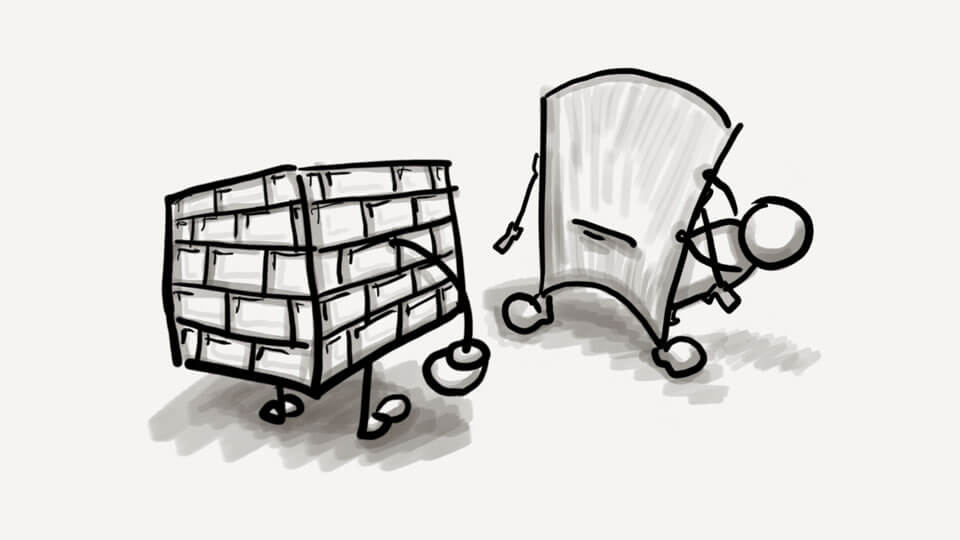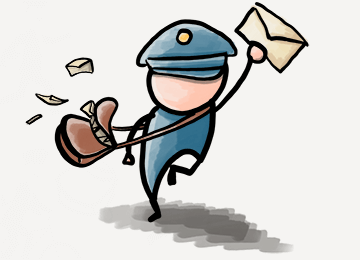Listen to this post
So, you’ve been staring at one page for hours until the blinking cursor became one with your retina. You suffer from the infamous writer’s block. It can turn the brain of the best of us into jelly, and our hands, only hours earlier dancing on the keyboard like the slender fingers of an inspired pianist, go numb.
Don’t worry. We can deal with it, but we may venture into the realm of weird. That’s why I’ll ask you first to go and see Mitsuko Uchida, a renowned Japanese classical pianist, and conductor.
Pay attention to her movements and facial expressions. They seem at once haunted and maddened, and yet you can tell right away none of it is for show. These eerie gestures are all part of Mitsuku Uchida’s musical expression; they help her music happen. Keep that in mind as we climb up the ladder of borderline insanity.
The reasons for writer’s block
Ideas can be defined as these beautiful fluffy things fluttering around our heads, always at the edge of peripheral vision. The trouble starts when we try to nail them down to the page. Why? Usually for one of two reasons.
One. The act of writing requires enough discipline to turn something undefined and vague, into a clear concept, one that could be understood by another human being.
Two. Something about your writing feels off to you. Most people who become writers have already developed an excellent taste for prose. If you can sense a problem, even if you can’t name it yet, your readers will sense it too. You should never aim for perfect, but fixing such problems takes writing from average to polished. Here are three ideas to get you started.
Have a chat with a sheet of paper
Take a blank sheet of paper and a pencil. Write down the idea you’re working on. Notice where you trip up.
Then write “I get stuck when trying to…” and finish the sentence. You want to pin down your issue, so make this statement as precise as you possibly can.
Ask on paper “Why am I getting stuck?”
Then try to answer. If that doesn’t help, examine your “I am stuck when trying to…” statement closely. Find that blunt edge and move to the next technique.
Have a chat with yourself
Though I sometimes provide evidence to the contrary, my brain has two hemispheres. So does yours. Lots of research on split-brain patients shows that a sense of one cohesive self is mostly an illusion. The two halves of our brains can have minds of their own. Employ them to help you.
Write “What’s it is that makes us stuck on this idea?” Like an internet chatbot talking with its copy, write down the first slip of an answer that comes to your mind. Examine it and ask a follow-up question.
It’s amazing how many things you can talk out with yourself if you buy into the illusion. Stay focused and on point. Chip away at your idea till you reach its core. It helps if you identify the obstacles you’re facing. Name your problem, and a creative solution should soon follow.
This technique works particularly well for when you need to zero in on an undefined doubt.
Have a chat with your characters
If the two of the above didn’t help, it’s time to employ your characters to do some of the work for you. Before you scream “Nurse! He’s out of bed again!” indulge me, and try this particular insanity for yourself.
Close your eyes and summon the character involved in the scene you’re having trouble with. Pause the scene. Imagine you’re the director who just called cut. Can you see it? Make sure you do. What’s your character doing after you called a break in filming?
Approach him/her. What do they say when they see you? Are they grumpy? Happy? Disappointed? Irritated? Write down what you see but make sure you write with your eyes closed. Ask your hero about what they think about your story. After all, it’s their story as well. Ask them what is it they want the most. Woo them for as long as it takes. Don’t give up until they start replying. And then listen.
After you’re done, make sure the next thing that happens in the story hits them in the gut for being so stubborn. Use their desires against them, and a good story will soon ensue.
I used these techniques to get unstuck many times over the years. I hope you find them useful. But tell me, what techniques are you using?

